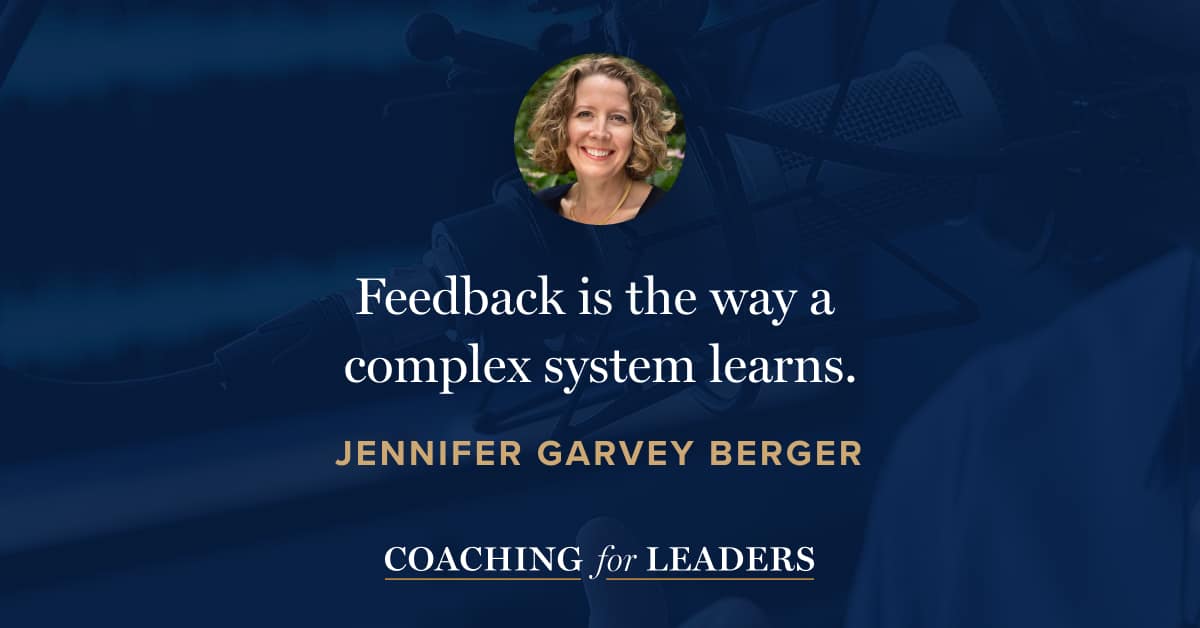Jennifer Garvey Berger: Changing on the Job
Jennifer Garvey Berger is cofounder and CEO of Cultivating Leadership, a consultancy that serves executives and teams in the private, non-profit, and government sectors. Her clients include Google, Microsoft, Novartis, Wikipedia, and Oxfam International. She is the author of four leadership books, including now in it’s second edition, Changing on the Job: How Leaders Become Courageous, Wise, and Steady in an Anxious World*.
We often think about feedback as something we give to someone else. What if, in addition to that, feedback is an opportunity for both parties to learn and grow? In this conversation, Jennifer and I explore how this can open a door to some of the best leadership work we do.
Key Points
- If we view feedback as only giving our truth to someone else, we’ve missed a huge opportunity for growth.
- Start by separating what happened from the interpretation of what happened.
- Get curious about your own response: what made you react so strongly?
- Talk it out. You have to welcome someone else into your thinking if you’re going to really learn.
- Invite in how the other person sees the situation. Consider saying, “I’m really interested in what this looked like from your perspective.”
- The process of unwinding what you hear is the good work of leadership and some the best work you can do.
- Build a solution together.
Resources Mentioned
- Changing on the Job: How Leaders Become Courageous, Wise, and Steady in an Anxious World* by Jennifer Garvey Berger
Interview Notes
Download my interview notes in PDF format (free membership required).
Related Episodes
- Essentials of Adult Development, with Mindy Danna (episode 273)
- How to Give Feedback, with Russ Laraway (episode 583)
- How to Lead Better Through Complexity, with Jennifer Garvey Berger (episode 613)
Production Credit
Coaching for Leaders is edited by Andrew Kroeger. Production support is provided by Sierra Priest.
Discover More
Activate your free membership for full access to the entire library of interviews since 2011, searchable by topic. To accelerate your learning, uncover more inside Coaching for Leaders Plus.





